During the congress one of the meetings was with representatives from many countries about the theme of “Populism in politics”.
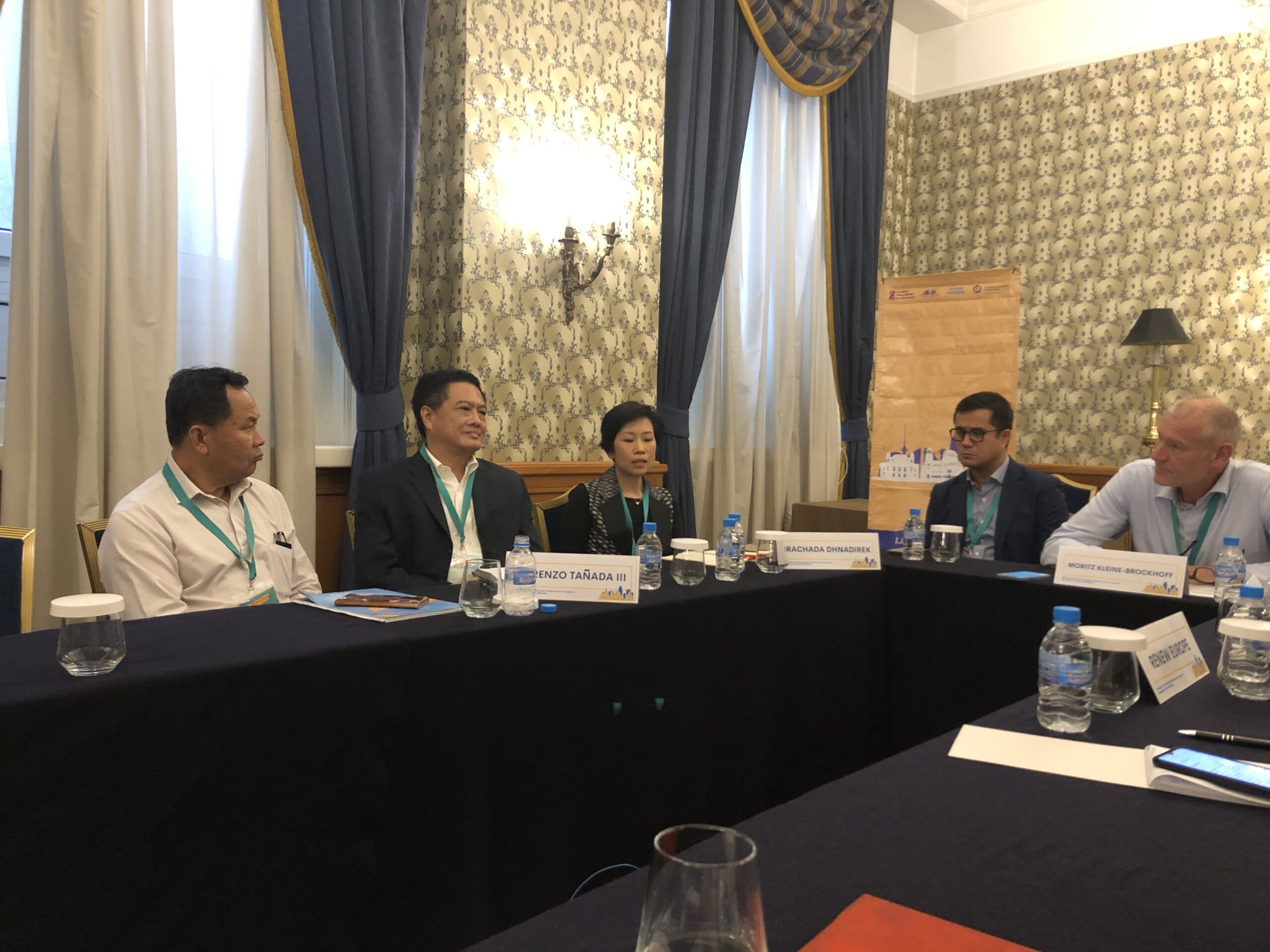
All over the world we can see that populism and the parties that are using it are getting more and more votes. Ilhan Kyuchyuk (politician from MRF and co-president of ALDE) states that in Bulgaria populism undermined the liberal progress, liberals are losing ground and have to turn this. Europe is very important for Bulgaria and a strong Europe, meaning not more but less and more efficient, must be the perspective. A difficult statement at the moment with all the populism in many European countries.
In Thailand the new elected government is also based on populism. The liberals are not part of the government. Winning the next elections is essential. The present party is hoping to win again and through this get absolute power in the future. One of the methods they are going to use to get this result, is the rise of minimum wage with 80%, no voters can withstand this. This all leads to much corruption and disruption of the market.
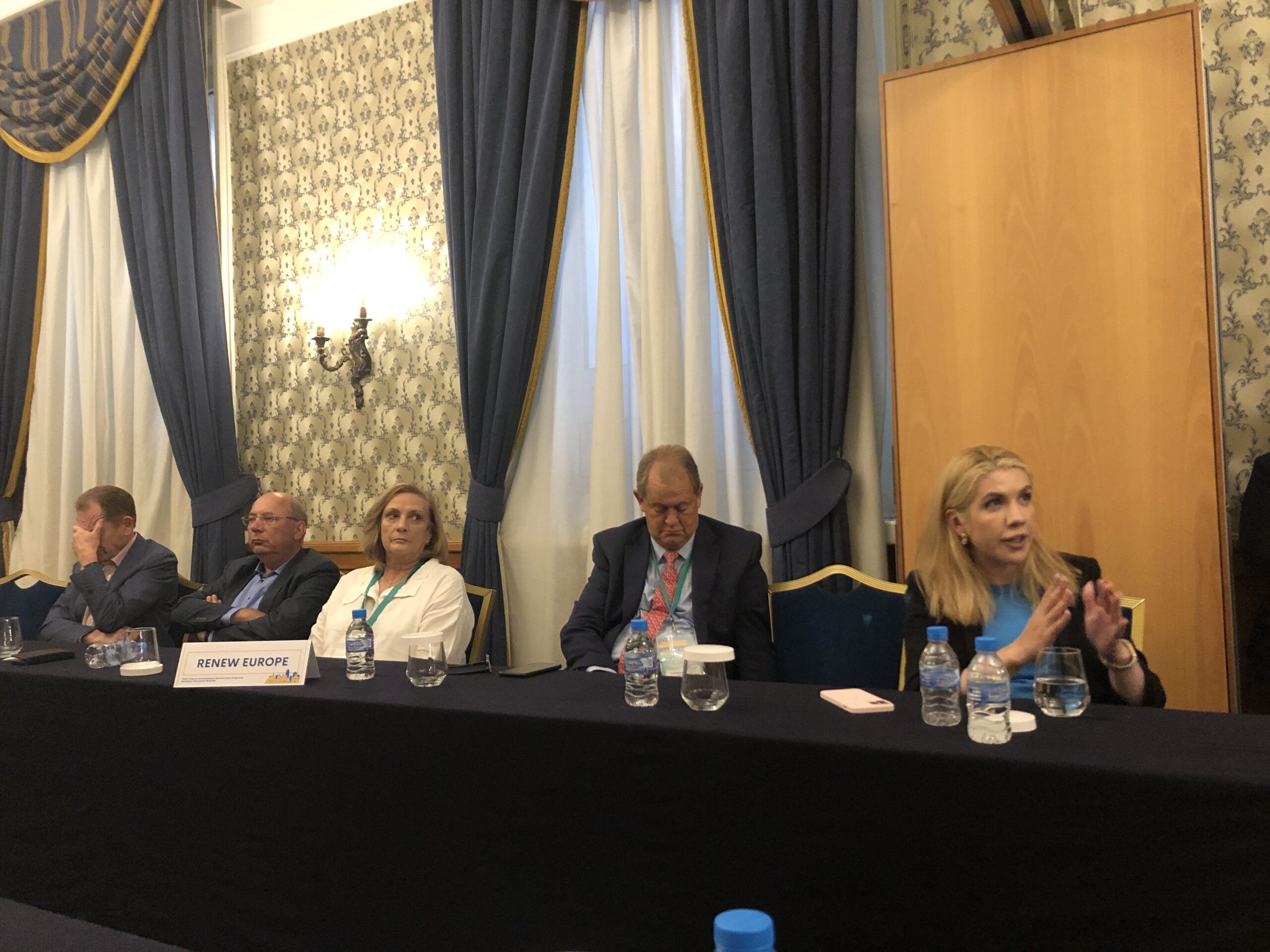
The conclusion is that some populism is necessary in the present time in any party. For in the end winning is essential.
In the Philippines the new president Ferdinand Marcos jr. was elected on the issue of anti-corruption, he belongs to no party, is a real outsider. He stands for the war on drugs but because of the Pandemic this war and the fight against it has been stopped, at the moment the government is not taking any action. In the years 2016-2020 there were 7800 deaths because of this war on drugs. The new president will have no debate and now still the Marcos mystique still has many followers.
As liberals we must act against populism and des-information. Populism can’t be fought, you have to fight it with populism and use it, liberalism packed in populism. But there is a vast difference between populism in West Europe and Asia. In Asia, money and economic growth is important but in Europe “simple answers to difficult questions”, are the points used by populist parties.
The Renew group stated that we all have to take care that no one is left behind, make yourself “popular” and use of images is needed. That should be part of the popular way to get results. It will be a challenge for all liberal parties.
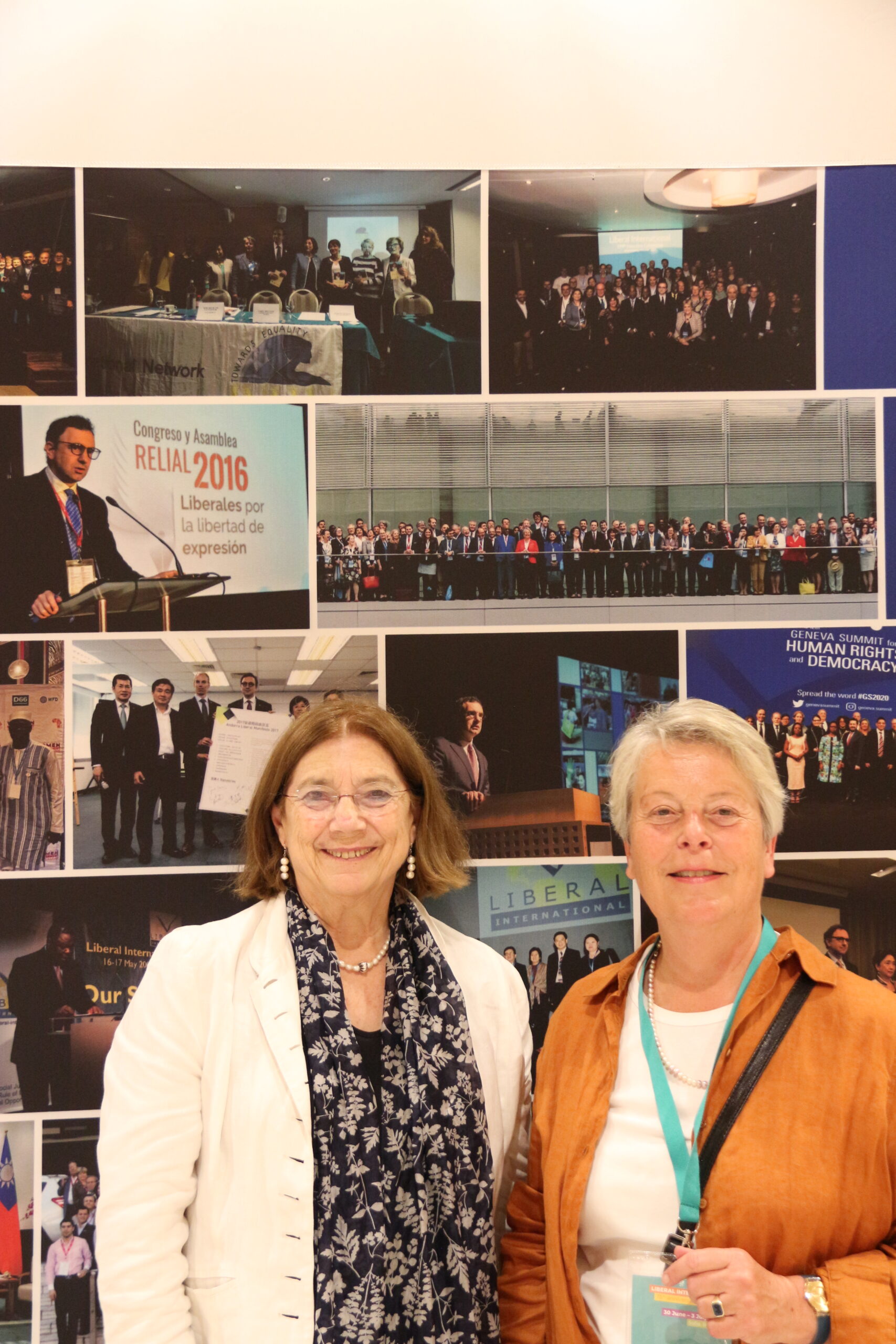
During the final session of the Congress the results were made known of the elections for the Bureau and the committees.
Hakima el Haité was re-elected as President of Liberal International.
Our president Jayanthi Devi Balaguru and past-president Margaret de Vos van Steenwijk were elected in the Human Rights Committee.
Ruth Richardson, board member, was elected in the Climate Justice Committee
Deputy-president Khadija el Morabit was elected in the Fair Trade Committee.
Blog Network UN Women’s Convention
My name is Ruth A. Richardson. I am a General Board Member and Advisor at the International Network of Liberal Women (INLW) www.inlw.org and a member of the UN Women’s Convention Network. I am also an Advisor and co-chair of the Climate Justice working group for the Women7 towards the G7 presidency, which was held this year in St Elmau Munich, Germany. https://women7.org/
Recently I participated in virtual CEDAW SDGs Workshop (with a focus on climate justice✊🌏). A space intended to support activists and organizations working on and interested in climate justice. Or are already involved in the UN Sustainable Development Goals and associated advocacy spaces.
IWRAW Asia Pacific has created a collaborative space where the CEDAW SDGs Tool can be introduced and participants can work with to help organizations build connections between the SDGs and human rights instruments. Click on the link https://docs.google.com/spreadsheets/d/1QH7U31a-K2hfZNh3PtK6BWIj7v1QPUWOP5eu8mPaRGQ/edit#gid=0 or CEDAW-SDGs Tool
The last session was dedicated to the participants to reflect on advocacy in the future, how it can be made more strategic and impactful, and what tools will help us do that. During the final session, space was created to hear and discuss with those who attended, among others, the HLPF or the 82nd CEDAW session, as well as those preparing to participate in the remaining trials this year.
In addition, in the last session you could provide feedback on the CEDAW SDGs Tool, which were presented during Session 2 and on the workshop in general.
Click this link for more information CEDAW-SDGs Tool or https://www.iwraw-ap.org/resources/cedaw-sdgs-tool/
It was an instructive workshop, because the focus was on the CEDAW and SDGs tool. You will learn when to use the tool and what connections can be made between each human rights instrument(s) and the SDGs. You will learn how to integrate SDGs in shadow reports or in other reports that you develop within the human rights framework, or to treaty bodies.The last session was dedicated to the participants to reflect on advocacy in the future, how it can be made more strategic and impactful, and what tools will help us do that. During the final session, space was created to hear and discuss with those who attended, among others, the HLPF or the 82nd CEDAW session, as well as those preparing to participate in the remaining trials this year.
Also give you feedback in the last session about the CEDAW SDGs Tool, which were/were presented during Session 2, and about the workshop in general.
Click this link for more information
You will also learn how to better prepare civil society reports for national, regional and global SDG assessments that focus on states’ human rights obligations. You will learn how and in what form to advocate for your state to use the SDGs as a tool and to accelerate progress in fulfilling its human rights obligations. Especially towards women and other marginalized groups of people. And finally, you will learn to influence the state of the development of SDG indicators, both at the national level, that integrate relevant human rights norms and obligations. As at the international level.
I learned a lot from this workshop. It has given me a lot of insights and really improved my autonomy. I can also use them in the field of climate, women’s and human rights and climate justice. The workshop has made me that I dare to rely more on my hunches from feeling and not from thinking. In short, this was a good tool to develop your creativity!
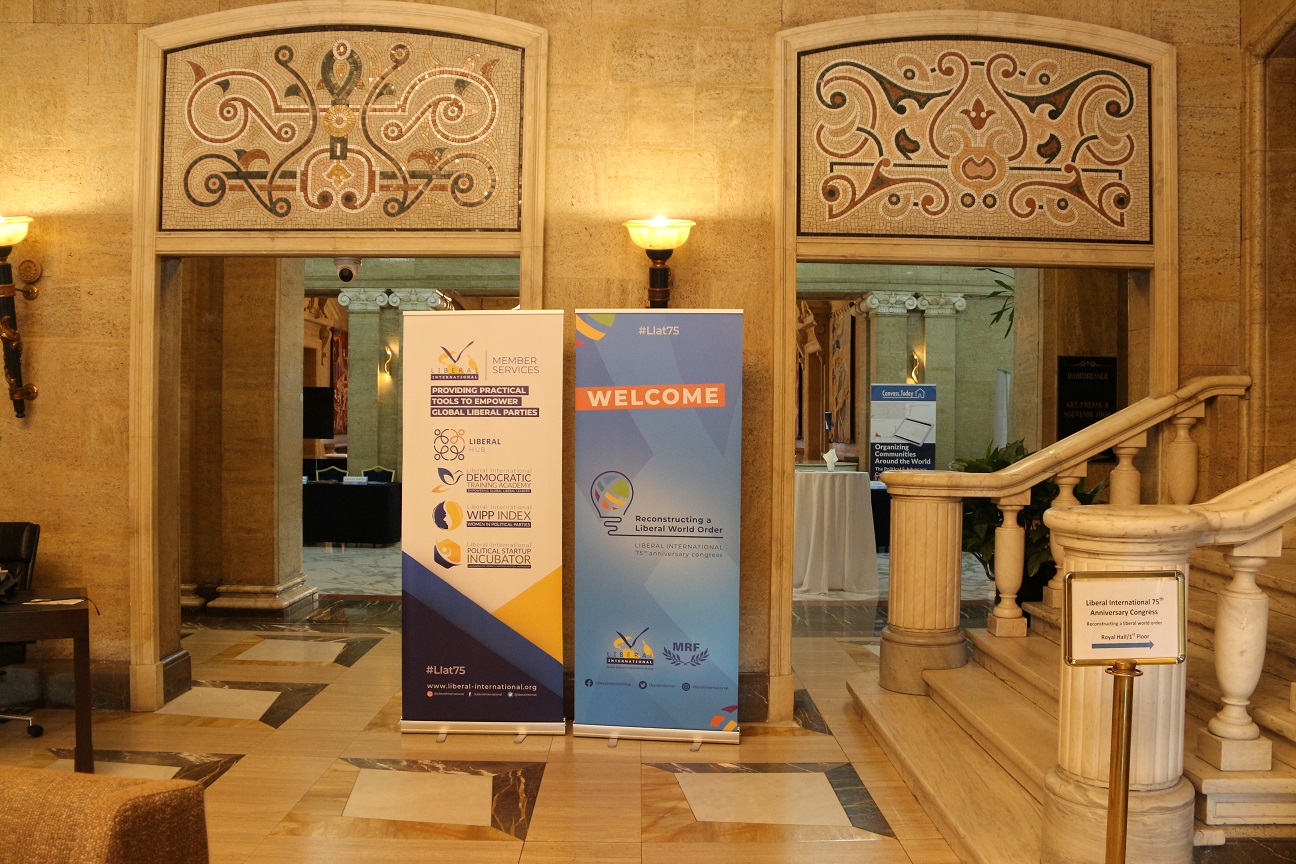
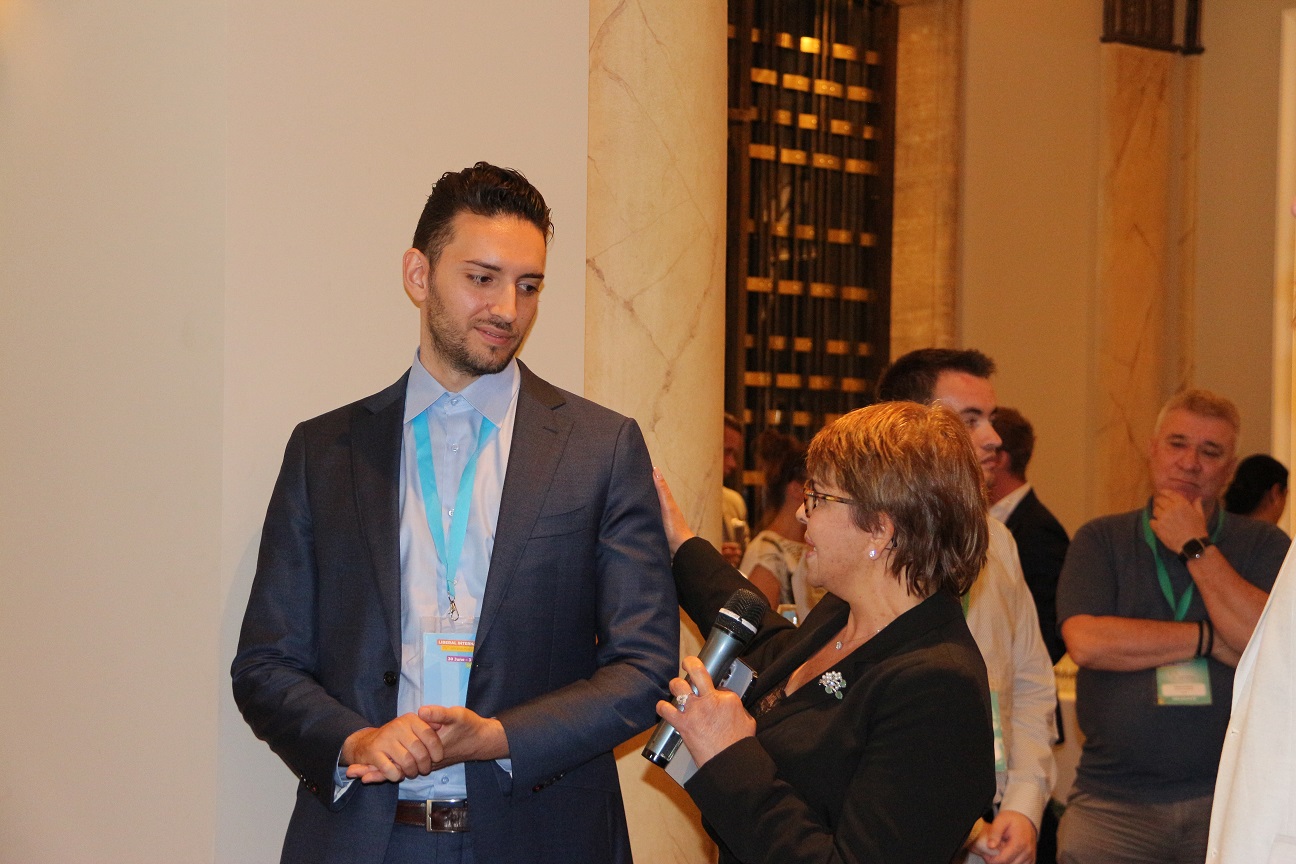
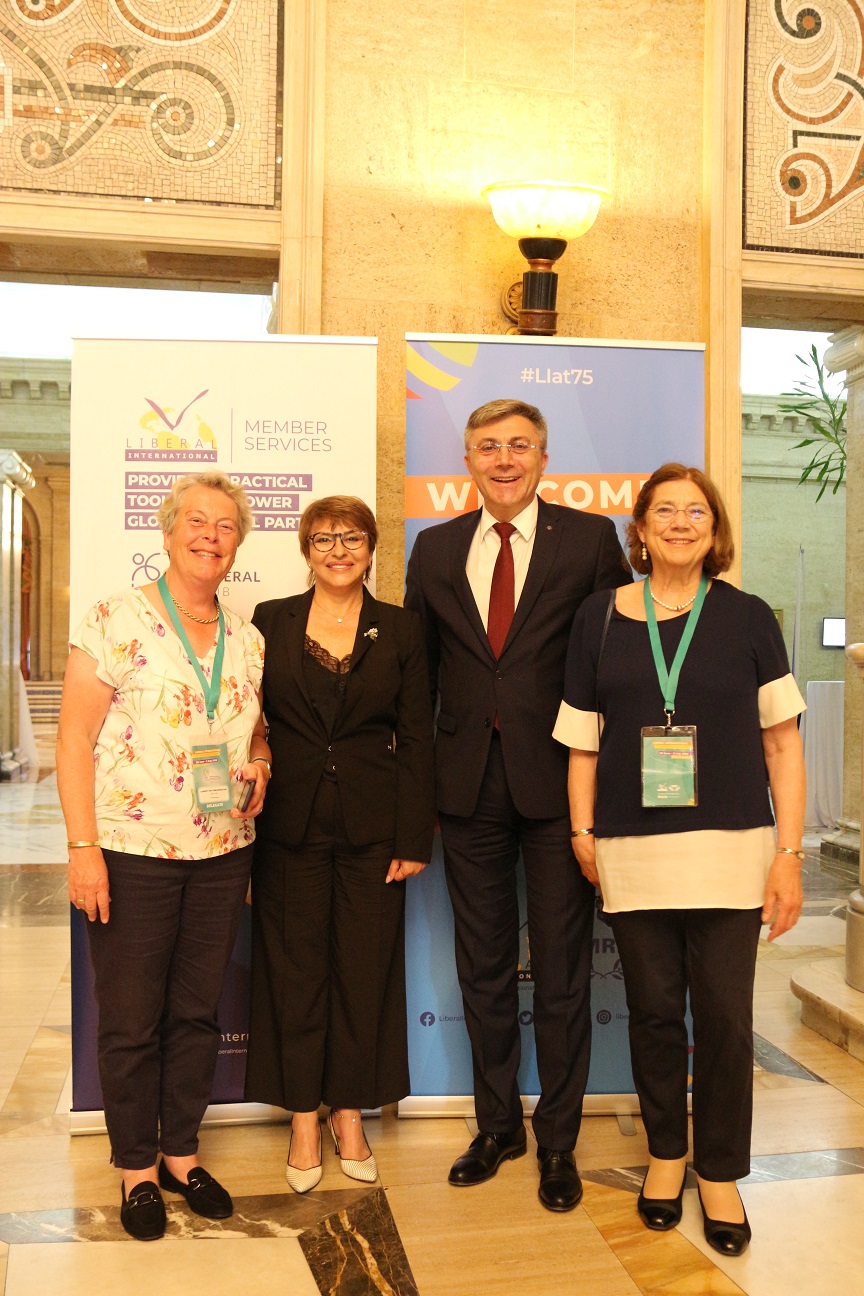
This year Liberal International met, after two years of zoom meetings because of Covid, in Sofia for our 75th congress. There were over 200 attendees from over 50 countries. At the welcome reception, Hakima el Haité president of LI, was very happy to see so many friends again after such a long and difficult time. Climate change, conflicts, pandemic, democratic recession, authoritarian resurgences as she told us, are changing our world! The theme of this congress was “Reconstructing a Liberal World Order” a very appropriate slogan. Today a devastating war is happening at the back door of Europe. The devastation brought by Vladimir Putin’s full-blown invasion of Ukraine goes beyond the borders of Ukraine threatening energy security in Europe and food security in a great deal of the world. Millions of people especially in the most vulnerable countries in Africa are at the risk of hunger as president Hakima el Haité said.
During the opening reception there was also the introduction of a new Serbian politician, member of parliament and president of the Free citizens Movement, Pavle Grbović. It is the first time in several years that Serbia will have liberals present in Parliament.
During the meeting on Friday morning, Sir Graham Watson, former leader of the ALDE party and member of the European Parliament gave us food for thought with his ideas about legal values, peace, freedom and democracy. With the war in Ukraine and opposition about the handling of the pandemic, we see the rule of law is under great pressure.
The Russian opposition voice from Dr. Grigory Yavlinsky, founding member of Yabloko, who reached us by zoom, made us aware that supplies have been stopped to Russia. Especially lack of medical items are causing people to die at the moment. 20% of the Russians do not agree with the present regime. The totalitarian system is based on their own former ideas and no reforms. The present system resulted out of the collapse of the iron curtain. The opposition did not agree with the system but realized too late that the system meant no freedom of the press, justice by fear and no protests are possible. The consequences are visible all over the world. President Hakima el Haité also confirmed these facts and wondered how far is Poetin prepared to go.
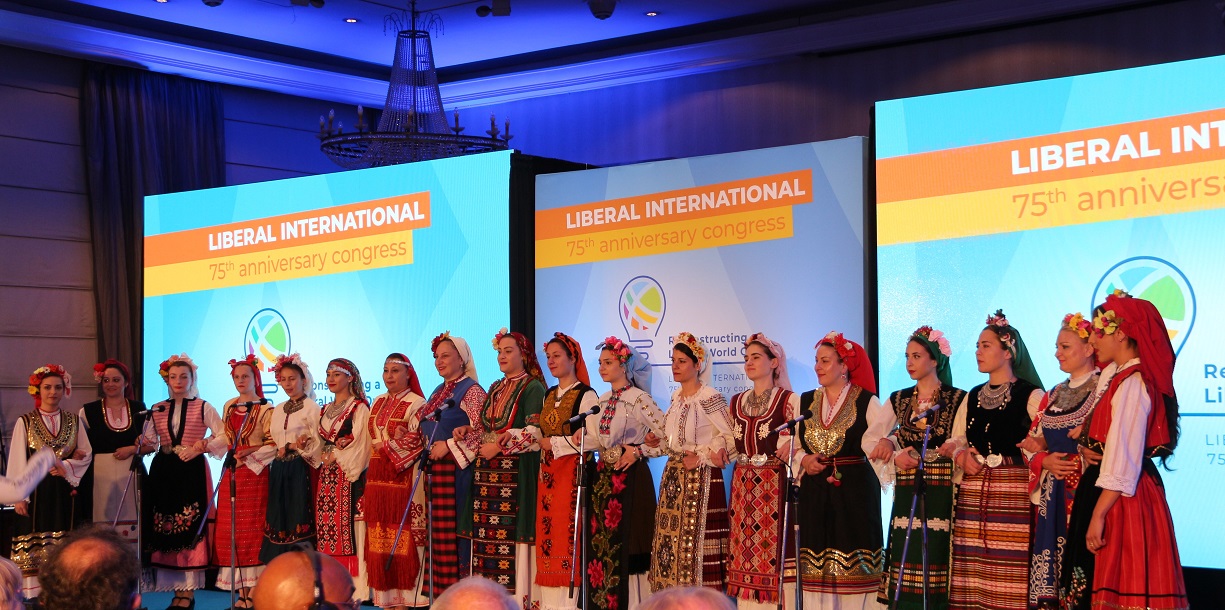
Later our member Lorna Marsden was appointed Patron of Liberal International as well as Robert Woodthorpe Browne.
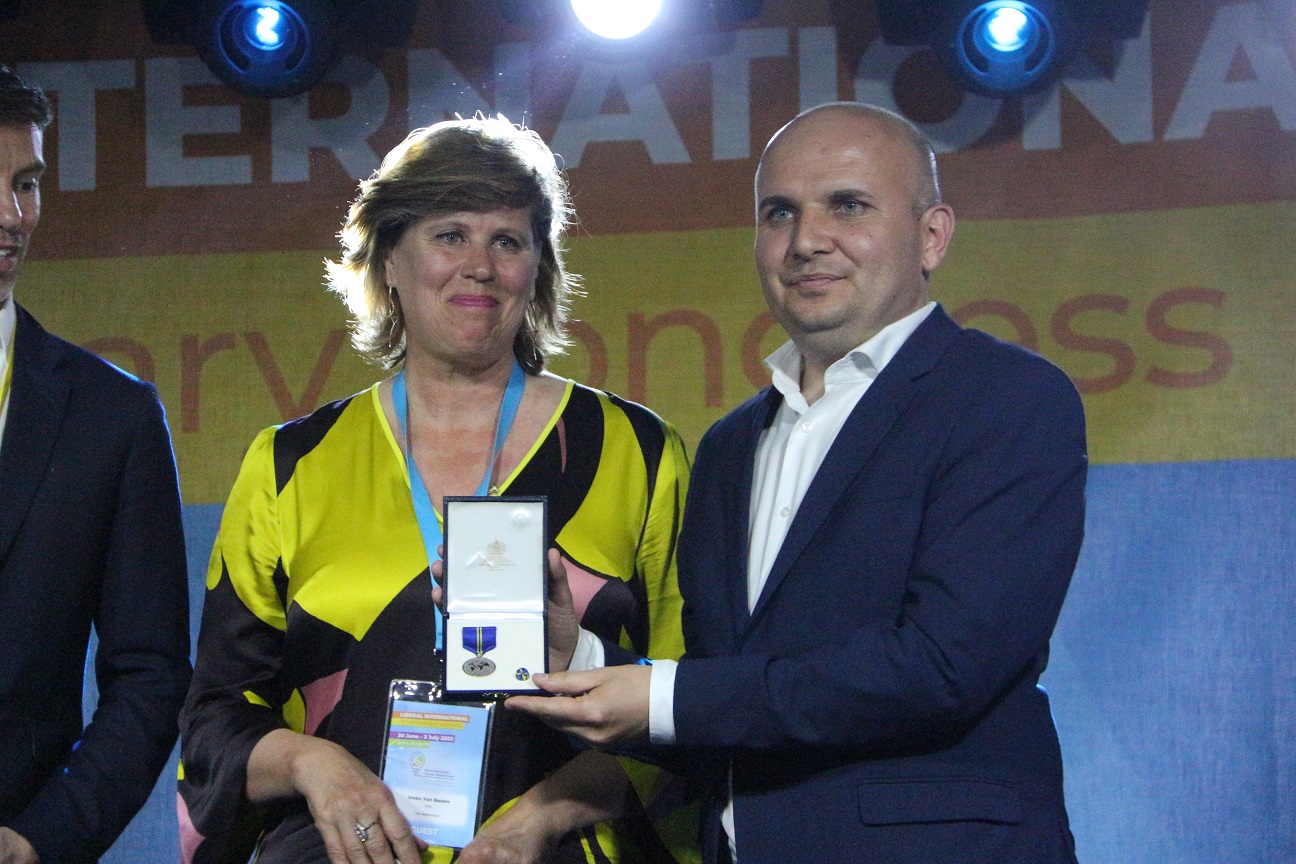
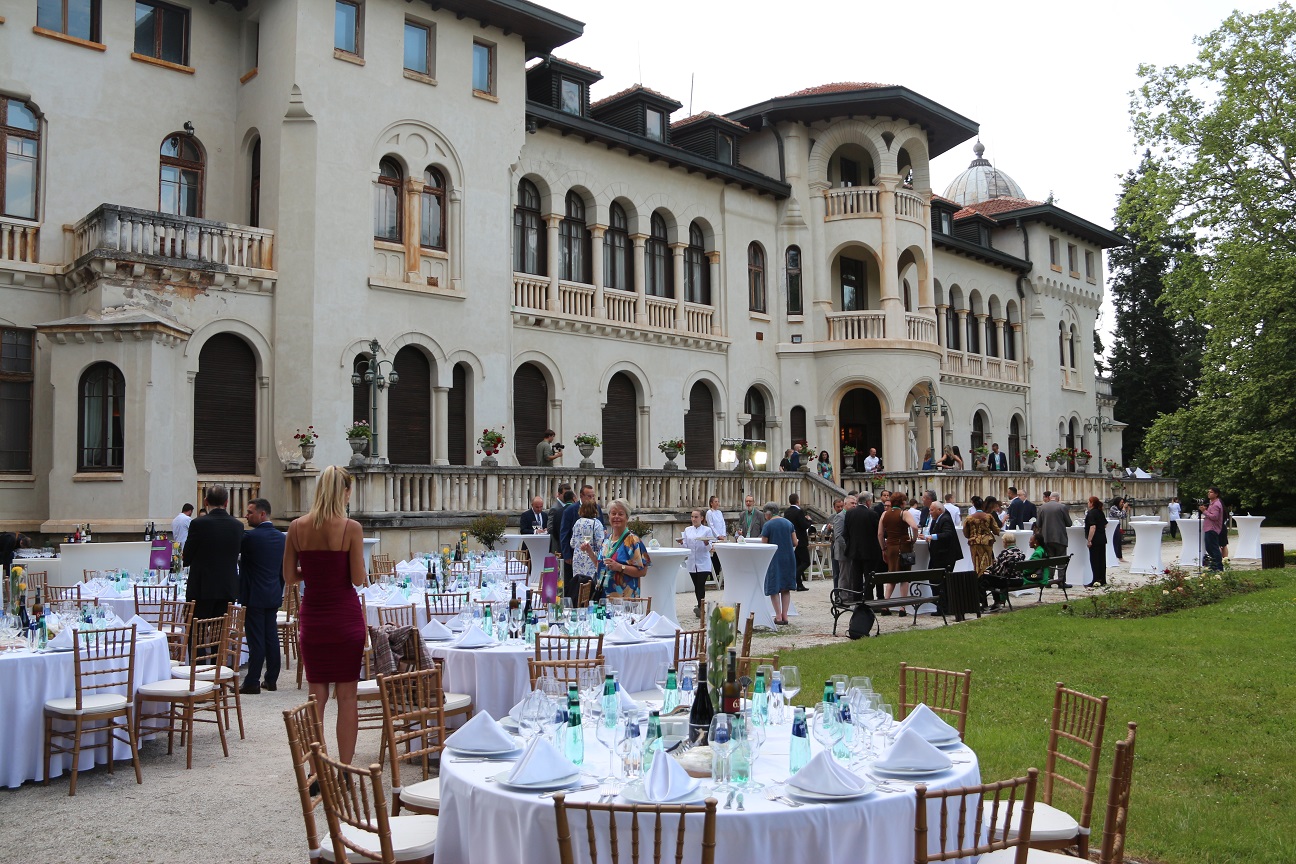
In the evening we had dinner in the Vrana Palace of H.M. King Simeon II of Bulgaria. The Hans van Baalen Medal of Liberalism, in commemoration of our dearly missed president of honour, was awarded to H.M King Simeon II of Bulgaria, the last reigning Bulgarian monarch.
Ilhan Kyuchyuk, co-president of ALDE and politician from the Movement for Rights and Freedoms (MRF) in Bulgaria received the medal to give it to Simeon at a later time.
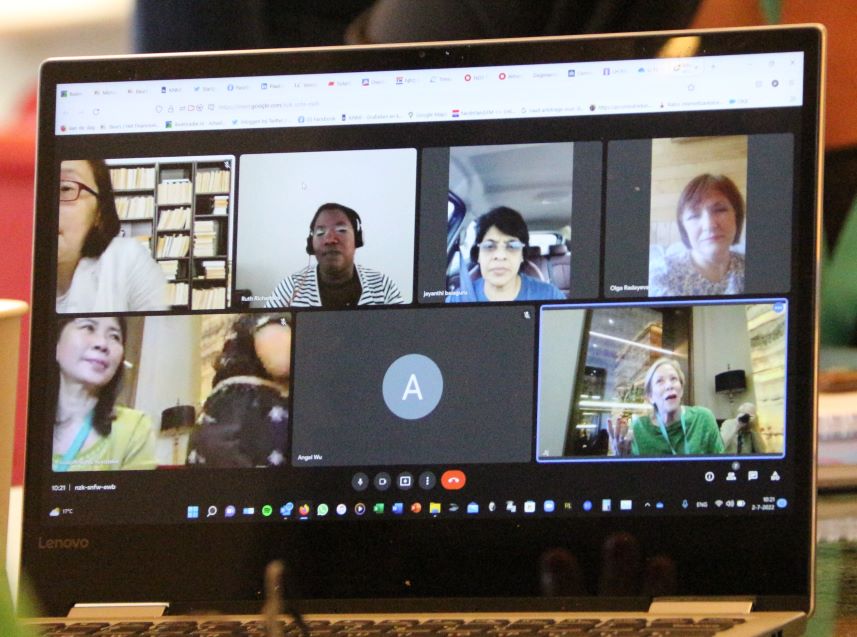
On the Saturday all the resolutions were discussed and adopted.
- INLW submitted the resolution: “Preventing and Combating Violence against women & girls and unpaid and underpaid care work”.
- US Supreme Court Decision, an urgency resolution submitted by INLW and SFP.
Urgency Resolution on Securing Freedom for Vladimir Kara-Murza, a renowned Russian journalist who earlier survived two poisonings and now is convicted to many years of prison with a risk of death, was submitted by the Canadian group. Also the re-elections took place with a 100% of votes for Hakima el Haité as LI President. Ruth Richardson, Khadija el Morabit, Jayanthi Devi Balaguru and Margaret de Vos van Steenwijk were all re-elected in their commissions for a new period.


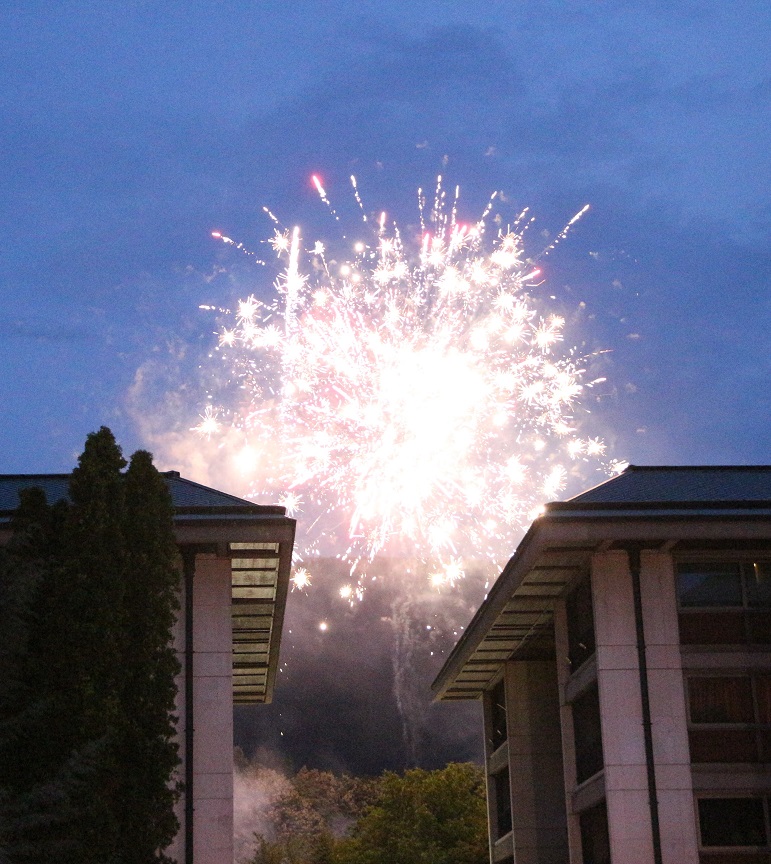
Afghanistan Shall Not Be Forgotten is one of the resolutions that was adopted during the congress.
We heard more about the present situation in Afghanistan by zoom from Dr. Sima Samar, winner of the Prize for Freedom 2021, member of the High-Level Advisory Board on Mediation and member of the High Level Panel for Internal Displacements. She began her career as a medical doctor providing health care in Afghanistan’s most isolated and marginalized region.
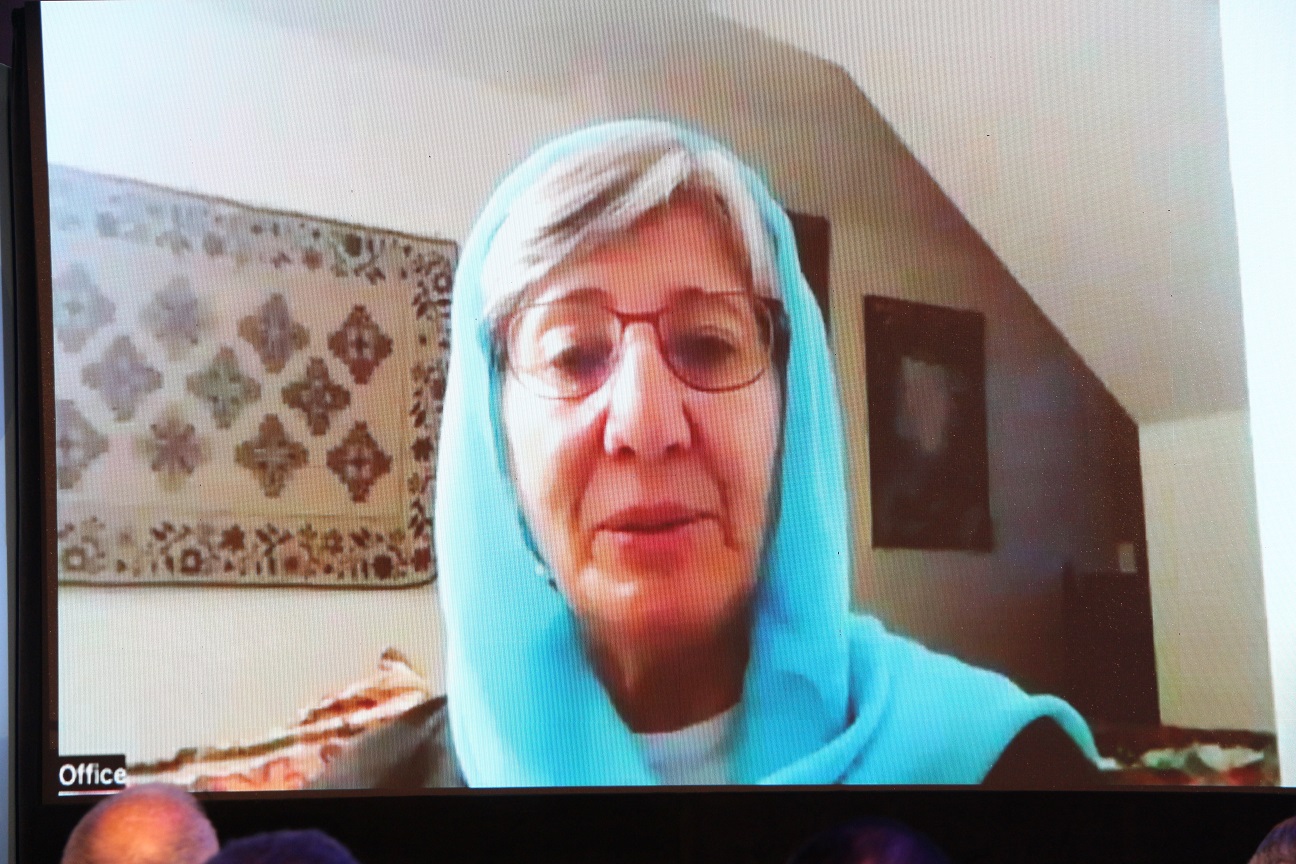
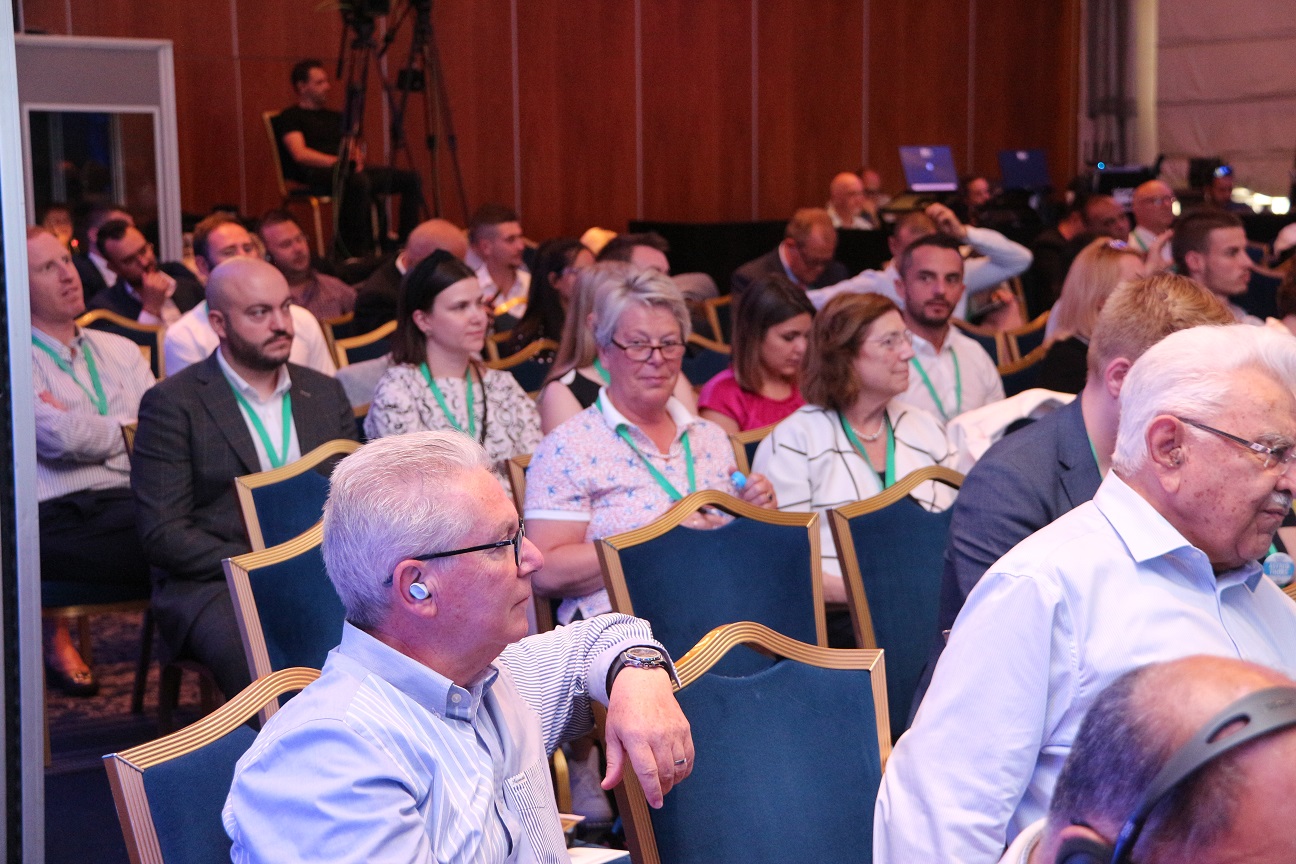
Women are no longer seen as humans, no more than the fly on the wall. Schools are closed for girls despite access to education being a fundamental Islamic and civic right and there is no freedom of speech for journalists. Even the newsreaders have to wear a mask as women are not allowed to show their faces. The tv stations are trying to get rid of all female news readers.
A nurse cannot get a job without a man’s permission and women are not allowed to get any treatment in hospital without a man.
There is no real system in what the government is doing and there is a rejection of democracy. At the moment there are more and more people who are unable to read of write. Many are sitting at home without work and with the high rate of inflation it is very hard to make both ends meet.
Because of the pour healthcare many are dying including many children.
UN can do some things and must ask the countries to keep the sanctions in place and keep blocking the regime’s access to the international financial system, until Afghanistan has a more inclusive government respecting everyone’s rights. Also the UN should call for the immediate opening of all schools to girls and restoring the right of women to gainful employment, targeting donor development at those districts which allow equal access to education and greater respect for human rights.
UN and the world must stand for freedom, fight for freedom for children and education. All human beings are of one frame.
At the moment the help that is given mainly goes to those who are in favor of the Taliban regime. It will be necessary to have an independent group to see to the distributions of goods and money for the people of Afghanistan.
The Bonn Climate Conference (SB56) 6-16 June 2022 is to express purpose of beginning to take stock of where the world stands when it comes to implementing the Paris Climate Change Agreement.
We are in the midst of a climate emergency, which is causing human rights violations, destroying ecosystems and biodiversity, and drastically increasing inequality across the globe.
The Global Stocktake (GST) discuss about the outcomes of the UNFCCC Climate Change Conference in Glasgow and the IPCC reports on impacts input to the technical assessment. But also about the energy, agriculture, land, ecosystems and (ground) water scarcity.

Recommendations for SB56
After extensive deliberations in the past two weeks, Global Stocktake and parties agreed on:
Human Rights
Ensure and promote the human rights of millions of people around the world including the rights of Indigenous Peoples who are threatened by loss of food and water sources, displacement, and aggravated conflict over scarce natural resources associated with the climate crisis.

Food Security (Agriculture)
Recognizing the fundamental priority of safeguarding food security and ending hunger, and the particular vulnerabilities of food production systems to the adverse impacts of climate change by including agroecology and its value for food security, the climate, and biodiversity in the implementation and policies as highlighted by the IPCC Special Report on Climate Change and Land. Food security is already and will increasingly be affected by the climate crisis.
Ecosystem Integrity
Invest in gender-transformative climate action and in biodiversity conservation measures and the importance of ensuring the integrity of all ecosystems including oceans, divest from fossil fuels and ensure that a healthy and sustainable environment is to the full enjoyment of human rights, including the rights to life, health, food, and water.
Just Transition and Decent Work
Promoting decent work by ratifying, funding, and enforcing ILO conventions on collective bargaining and freedom of association as well as on domestic workers and on the
elimination of violence and harassment. A just transition is central to ensuring socially just and equitable climate action as it is fundamentally about realizing the transition from a fossil-fueled economy to a fossil-free one in a fair and inclusive way for workers and in a manner that creates decent work conditions.

Ruth attended the SB56 KCI-6 meetings and workshops (KCI: Katowice Committee of Experts on the Effects of the Implementation of Response Measures) and the Global Stocktake SB56 meetings at the June Climate Conference in Bonn. They spoke about several urgent topics that could affect the rest of the world.
The IPCC reports have reaffirmed the urgency, with the devastating impacts on human life and biodiversity (including food security and land water scarcity) of exceeding 1.5°C, and the serious inadequacy of current mitigation pathways. In addition, the tragic Russian invasion of Ukraine, financed by fossil fuels, has highlighted the greater risks of our continued dependence on oil and gas.
This year’s UN annual climate conference in Bonn aims to lay the groundwork for success at COP27 (November 6-18, 2022) in Sharm el-Sheikh, Egypt.
At COP27 in Egypt 6-18 November 2022, GST will primarily focus on implementation, and nations are expected to show how they will, through legislation, policies and programs, and throughout all jurisdictions and sectors, begin putting the Paris Agreement into practice in their home countries.
I, Ruth Richardson (INLW) will be working together with Women and Gender Constituency to ensure decisions reached do not come at the expense of ambition, climate change and of human rights, including the rights of Indigenous Peoples, but instead help enable meaningful action at COP27 in Sharm El-Sheik, Egypt, later this year.
Information about Women and Gender Constituency / Wedo
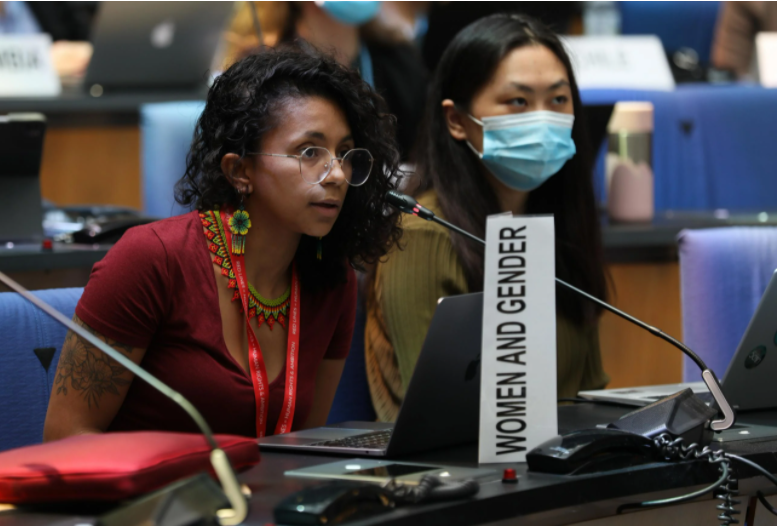
The Women and Gender Constituency (WGC) is one of the nine stakeholder groups of the United Nations Framework Convention on Climate Change (UNFCCC). Established in 2009 and granted full constituency status in 2011, the WGC consists of 33 women’s and environmental civil society organizations, who are working together to ensure that women’s voices are heard and their rights prioritized in the fight against
climate change. The Women and Gender Constituency, consisting of a broad variety of national and regional network organizations, represents hundreds and thousands of people across the globe, with advocates from over 90 countries.
CSW66 – APL / INLW
Parallel Event #2_12972
Gender Equality in Leadership and Economic Power
Parallel Event Description:
Join us as we celebrate path-breaking women in leadership and discuss the real challenges that remain for gender equality and economic power. While some places are seeing greater participation of women in leadership roles, significant barriers prevent more women from entering the same ranks. Many women experience “double workload” pre- and post-pandemic. What rules need to change to prevent this? How can the “standard career path” narrative be changed for greater fairness? What can organizations do to create better “family support” and provide opportunities for decision-making positions and economic power to more women?
The second session (CSW Event #12972) on March 18th, 9:00 pm EST, with the theme: “Gender Equality in Leadership and Economic Power”, was opened by Chairperson of the International Network of Liberal Women Jayanthi Balaguru, and moderated by this year’s event organizer Josephine Wu Vuylsteke.
In Chairperson Balaguru’s opening remarks, she reported on gender equality status in Asia and indicated that there is still a lot of work to be done to benefit the rights of women around the world.
The participants were President of East-West Center and Retired Army Major General Suzanne Puanani Vares-Lum, Chairperson of CALD Youth Democratic Party (DP) of Thailand Siripa Nan Intavichein, Director of Dept. of Women’s Affairs for Democratic Progressive Party (DPP) of Taiwan Chia Tien Hsu, and Shiuan Ru Wang, a member of the “Open Government National Action Plan Promotion Group” of Taiwan.
Suzanne Puanani Vares-Lum is the first female president of Hawaii’s East-West Center since its establishment 62 years ago. She mentioned that when she was young, she never imagined that she would one day hold a supervisory position that used to be held by men.
She also emphasized that for women to take care of work and family requires the cooperation of spouses and family members in domestic work. Therefore, “good men” are very important to promote gender equality. Chairperson Siripa Nan Intavichein shared that women in Thailand are currently engaged in politics, salary, employment, job opportunities, although even during the coronavirus epidemic, there was a gender gap between men and men. Director Chia Tien Hsu shared the development and challenges of gender equality in Taiwan in recent years.
The proportion of women in politics and government units in Taiwan ranks among the best in Asian countries. She also suggested that President Tsai Ing-wen’s election as Taiwan’s first female president was an important milestone for the development of Taiwan’s gender equality.
Delegate Shiuan Ru Wang is only 20 years old. When she was 16 years old, while she was still a high school student, she advocated for the reduction of one-time use tableware through online platforms and successfully influenced government policy.
Taiwan began to ban plastic straws as a result of her actions. It is impressive that young women can play a key role in major government policies. At the same time, they are more optimistic about the future development of gender equality.
Continue readingCSW66 – APLW / INLW
NGO CSW66 Parallel Event
2022 March 17, 9:00PM EST (March 18, 9:00AM/Taiwan Time)
Government Policy for Substantial Carbon Reduction
Parallel Event Description:
What kind of planet will we leave for the next generation? As the impacts of climate change become visible around the world, the need for action by world governments is becoming more urgent than ever. The pandemic created an additional crisis for decision makers, but it also offers opportunity for sweeping change. What are governments’ role in balancing economic recovery with environmental policy? Besides economic barriers, what barriers exist for governments to enact substantial change in carbon reduction — and how can they be overcome by citizen groups? We hope to discuss tools and strategies that can be used for the challenges ahead.
The first session (CSW Event) held on March 17th, with the theme: “Government Policy for Substantial Carbon Reduction“, was opened by Chairperson of Asia Pacific Liberal Women Association Maysing Chen and moderated by Dr. Ketty Chen, Vice President of Taiwan Democracy Foundation.
In her opening remarks, Chairperson Maysing Chen expressed that we are very honored to have such distinguished policy-makers and environmental protection advocates as speakers for this event. We sincerely hope through this event that both women and men will be inspired to preserve the richness of our planet for future generations.
The participants were U.S. Representative Ed Case from Hawaii, Taiwan’s Ambassador-at-Large for Climate Change and Environmental Sustainability
Dr. Eugene You-hsin Chien, former member of Parliament for the Democratic Party in Thailand
Dr. Monthip Sriratana-Tabucanon, and Barbara Finamore, former lawyer for the American NGO, Natural Resources Defense Council, and currently a senior visiting scholar at the University Energy Research Institute.
Congressman Ed Case pays special attention to the issue of climate change in the Asia-Pacific region, noting there are more than 200 climate change related bills proposed at the federal level. He mentioned that when undeveloped or developing countries suffer from the disasters brought about by climate change, the most direct victims are often disadvantaged children and women.
Ambassador Eugene Chien has devoted himself to environmental protection and sustainable development projects in recent years. He has been deeply engaged in education from primary schools, secondary schools, universities and business circles, but he also expects the Taiwanese government to keep up with the United Nations’ timetable and goals for sustainable development.
Dr. Monthip Sriratana-Tabucanon, former member of the Thai Democratic Party, focuses on climate change issues and serves as a director of many international sustainable development organizations. Lawyer Barbara Finamore pointed out that the problem of air pollution in the Asia-Pacific region is the key. 40% of the world’s air pollution comes from the Asia-Pacific region, 60% is from other regions, and China is particularly serious. Barbara is a well-known lawyer, focusing on environmental protection law and clean energy for more than 40 years.
All participants advocate that governments must work together with representatives of civil society and big business corporations to create substantial policy for meaningful carbon reduction around the globe.
Continue reading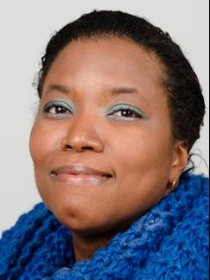
Ruth on her way to the UN Water Conference March 2023 in New York
After 46 years, another UN water conference will finally take place in March 2023. This time held in New York (March 22- 24, 2023). The first of its kind since 1977! The Netherlands and Tajikistan will host the conference.
Conference preparations
Preparations for the conference are in full swing. For example, colleague Ruth Richardson spoke on behalf of the water boards and the INLW (International Network of Liberal Women = link to website) at the Pan-European Regional Preparatory Assembly for the United Nations Water Conference 2023 in Geneva. She did this during session 3 where it was about ‘strengthening water management at national and cross-border level’. (link to calendar).
Read Ruth’s statement (link to statement) or listen to the audio recording.
Includes character
It is important for the Netherlands that the UN Water Conference 2023 is inclusive, giving civil society the opportunity to contribute to the conference. Important topics are, for example, water, energy, climate and food security.
Since 2017, Ruth has been a General Board member of INLW (International Network of Liberal Women). She wants to draw attention to the role of women in combination with water management (water, hygiene and health) and biodiversity.
“Equal rights for women (and girls) must be at the heart of human rights policy.”
“Fight for the things we should care about, do it in a way that will get others to join you.
She focuses on many issues affecting women’s and girls’ rights and humanity around the world.
Support group formation
Recently, Ruth and Thea Fierens formed a support group (steering group). The members in the support group feed Ruth with information so that the subject is put on the UN agenda.
More information:
More information about the UN Water Conference can be found on this website:
https://www.unwater.org
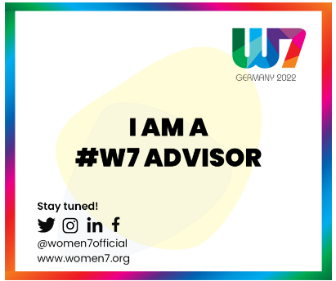
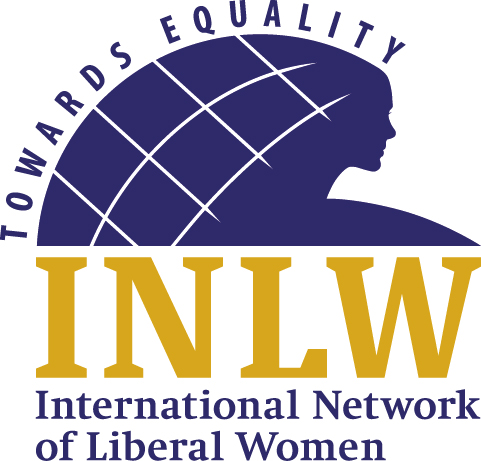
 Visit our Facebook page
Visit our Facebook page